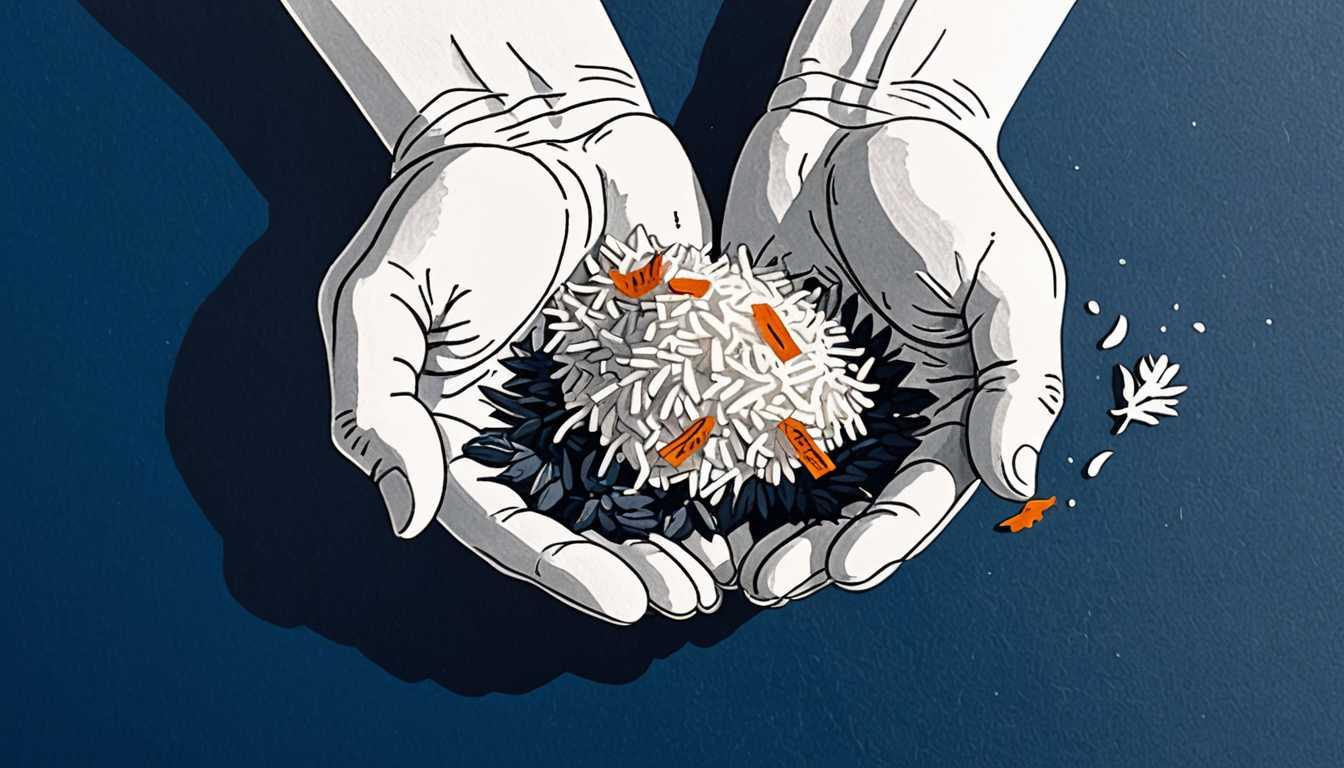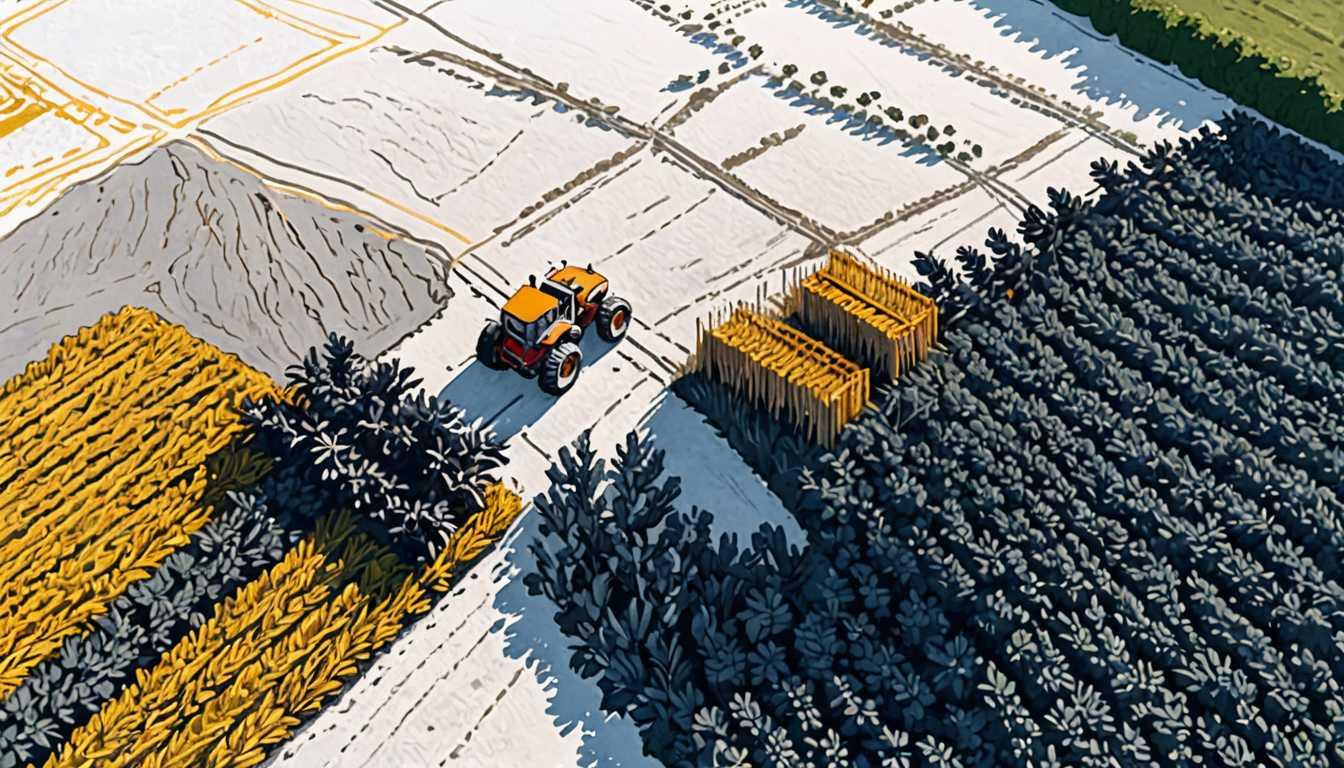Seaweed: The Ocean's Green Guardian
January 2023
Popular Science
Introduction
Dive into the world of seaweed, not just the icky stuff at the beach, but a sustainability superhero according to Popular Science! Seaweed farming isn't just about creating an underwater garden; it's a game-changer for our planet. From gobbling up carbon to potentially replacing plastics and even making cows less gassy (yep, you read that right!), seaweed's got it all. Researchers are now saying this slimy savior could revolutionize our diets and tackle global food insecurity, all while cutting down on those pesky greenhouse gases. Ready to see how this aquatic plant is making waves in sustainability?
READ FULL ARTICLEWhy It Matters
Discover how this topic shapes your world and future
Seaweed - The Unsung Hero of Sustainability
Imagine a world where the air is cleaner, the oceans are thriving, and food is abundant for everyone. Sounds like a dream, right? Well, seaweed farming might just be the key to turning this dream into reality. It's not just about the slimy plant you avoid while swimming; it's about a powerhouse of sustainability that's catching the eyes of scientists and environmentalists globally. Seaweed is more than a culinary delight in sushi; it's a plant that can absorb carbon dioxide, potentially reduce greenhouse gases from agriculture, and even replace plastics. This topic isn't just for marine biologists or environmentalists; it's for anyone interested in the future of our planet, including you. By understanding the role of seaweed in sustainability, you're stepping into a world where your choices and knowledge can contribute to global solutions.
Speak like a Scholar
Aquaculture
The farming of aquatic organisms like fish, shellfish, and seaweeds. Imagine farming, but instead of cows and corn, it's fish and seaweed.
Carbon dioxide (CO2) equivalent
A standard unit for measuring carbon footprints. It's like comparing different types of greenhouse gases on how much they warm the Earth compared to CO2.
Global biosphere management model
A tool scientists use to predict how different ways of using the land and sea could affect the planet. It's like a video game for the Earth's future, helping us make better environmental choices.
Greenhouse gas emissions (GHG)
Gases in Earth's atmosphere that trap heat. They're the invisible villains in the story of climate change.
Exclusive economic zones (EEZs)
Areas of the sea where countries have special rights over marine resources. Think of it as the oceanic version of calling dibs.
Invasive species
Plants or animals that spread to places where they're not native, often harming the environment. They're like uninvited guests at a party who refuse to leave.
Independent Research Ideas
The role of seaweed in traditional diets and modern nutrition
Explore how seaweed has been used in traditional diets around the world and its potential in modern nutrition. This could lead to fascinating insights into cultural practices and future food sustainability.
Comparative study of carbon sequestration in terrestrial vs. aquatic plants
Investigate how seaweed compares to land plants in absorbing carbon dioxide. It's a chance to dive deep into the science of climate change mitigation.
The impact of seaweed farming on marine ecosystems
Examine both the positive and negative effects of seaweed farming on surrounding marine life. This topic offers a balanced view of environmental conservation.
Development of biodegradable plastics from seaweed
Research the process and potential of creating eco-friendly plastics from seaweed. Imagine contributing to solving the global plastic pollution crisis.
The economics of seaweed farming in exclusive economic zones (EEZs)
Analyze the economic viability and challenges of seaweed farming within EEZs. This could uncover opportunities and obstacles in the path to sustainable ocean farming.
Related Articles

Farming: Our Climate's Future
May 2020
McKinsey & Company

Feeding the Future: Smart Farmland Shifts
April 2022
Harvard University

Ocean's Hidden Carbon Treasures Revealed
November 2021
Phys Org

Fertilizers: The 80% Emission Cut
February 2023
University of Cambridge

Seafood Without the Sea
September 2019
Smithsonian Magazine